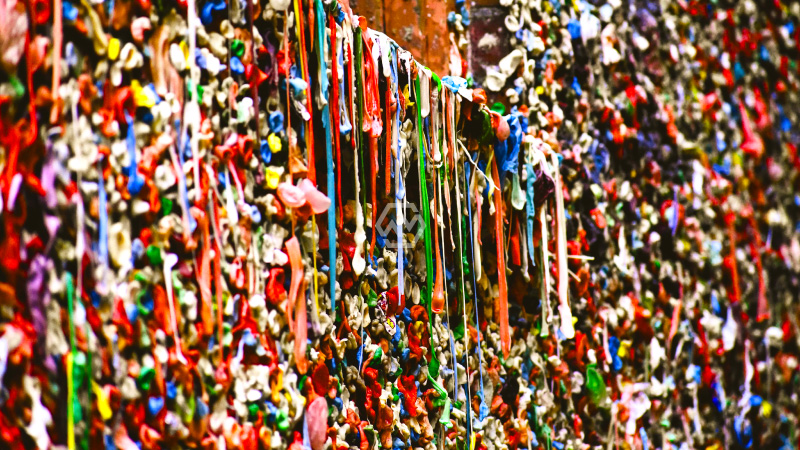- Chewing gum is made from synthetic polymers that don’t biodegrade.
- Discarded gum can remain on surfaces for years, contributing to litter and pollution.
- Efforts are underway to develop biodegradable gum and promote better disposal practices.
Chewing gum waste is a persistent environmental problem due to its composition of synthetic polymers that resist natural decomposition.
Once discarded, gum adheres to surfaces like sidewalks and streets, where it can remain for years, leading to costly and time-consuming cleanup efforts by municipalities.
Tackling the Environmental Challenges of Chewing Gum Waste
To address this issue, some cities are implementing fines for improper disposal, while others promote the development of biodegradable chewing gum. These initiatives, along with public education on proper disposal, are critical steps toward reducing the environmental footprint of gum waste.
The challenge of cleaning up chewing gum waste is significant, with many cities spending millions annually to remove it from streets and sidewalks. Specialized cleaning methods, including the use of steam or chemical solvents, are often required, further escalating costs and environmental impact.
Beyond the visual blight, chewing gum waste poses a threat to wildlife, as animals may mistake it for food. This adds another layer of environmental concern, highlighting the need for more sustainable chewing gum options and better public awareness of disposal practices.
In response to this issue, some manufacturers are exploring the development of biodegradable chewing gum. These alternatives aim to reduce the environmental impact of gum waste by breaking down more quickly, minimizing long-term pollution. Public campaigns to promote responsible disposal are also key to mitigating this widespread problem.
The environmental impact of chewing gum waste is a complex issue that requires a multifaceted approach, including innovation in product design, public education, and improved waste management practices. By tackling these challenges, we can work towards a cleaner and more sustainable urban environment.
“Small acts, when multiplied by millions of people, can transform the world.” – Howard Zinn



